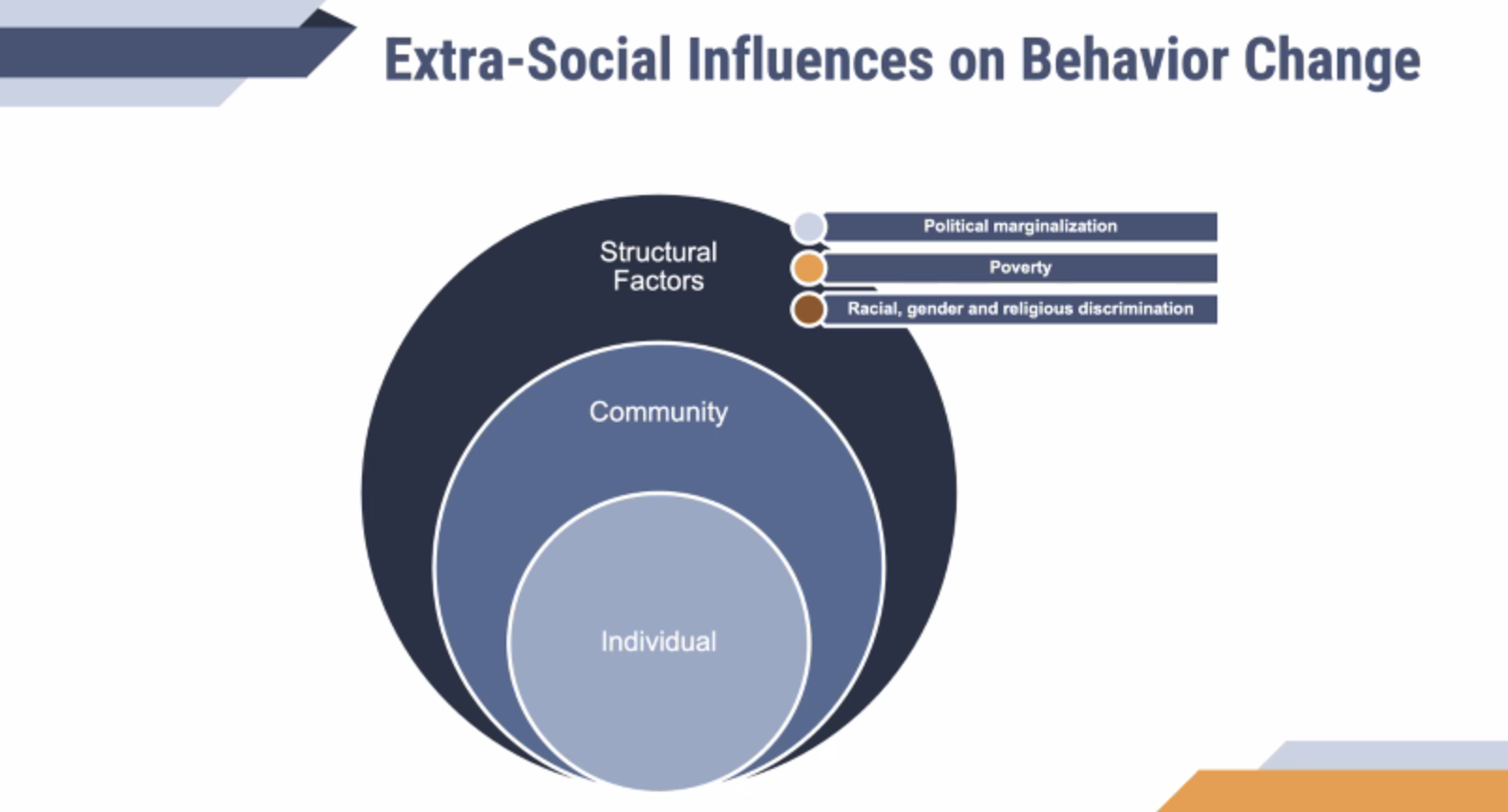On May 12th, I attended the webinar, Centring Community in FGM/C Behaviour Change Theory. This webinar was presented by Dr. Bettina Shell-Duncan, a Professor of Anthropology at University of Washington, conducts mixed method bio-cultural research on maternal and child health in sub-Saharan Africa; much of her research focuses on the study of female genital mutilation/cutting (FGM/C). Through her work with WHO and UNICEF, she has examined the politics of international campaigns to end FGM/C, and the implications of adopting a health and human rights framework.
The webinar included stories on how theoretical models of behaviour change have been applied to FGM/C programs over time, and how this impacts the strategies to shift community beliefs about FGM/C.
FGM/C activists aim to change beliefs about FGM/C and behaviour: we must not only work towards diminishing support for the practice, but also the act itself. Dr. Shell-Duncan explained the importance of this distinction, as mothers often do not make decisions about FGM/C alone. If other families’ choices do matter, this adds an additional layer of challenge in persuading decision makers. This raises the question of what authority do individuals have in the decision making process?
Behavioural change models were developed to take this question into account, and led to the development of social norms models. To summarise: a family's action or decision to cut depends on the actions of other families and what is considered a norm. Community members do not want to deviate from what is deemed acceptable behaviour. An important element of this model points to how individuals do not make decisions in isolation. People have strong beliefs about what is proper parenting and are aware of what others expect. The emphasis placed on social integration and acceptance can make it more difficult to abandon the practice. People worry that if they do not conform they will be ostracised, lose social support, and diminish marriage prospects. Therefore, if change in belief happens collectively, this will lead to co-ordinated action to end FGM/C.
How can we coordinate this change?
To coordinate change, Dr. Shell-Duncan suggests moving beyond the assumption that everyone is on the same page. She placed emphasis on the successful impact of community discussions that explore norms and highlight changing norms and meanings. She also pointed to dispelling pluralistic ignorance – faulty assumptions about what others want and do. For example, one might assume men prefer if women undergo FGM/C while discussions with them may reveal faulty assumptions. This can spark dialogue and encourage people to pledge to create change.
Change Agents and Social Networks
Change agents are individuals who promote and create change. It is within a social network that change agents can act to influence others, as social networks connect individuals and are the heart of community dialogue. Dr. Shell-Duncan spoke about the power of persuasion, and how social norms can change quite quickly in this way. While it is true that some individuals may be more persuasive than others, such as political and religious leaders, healthcare providers and respected elders in the community, the spread of information occurs across all levels and in multiple settings.
It was clear from this webinar that social norms affect our lives in many ways, influencing our behaviour, language, and social beliefs. When I think about social norms in my everyday life, I recognise them in both a positive and negative light. Some social norms are necessary for society to function and allow us to understand each other’s motives and actions. These include norms surrounding phone etiquette, public behaviour, and meeting someone for the first time. When we think of norms in this way, it is clear that they contribute to social order and shape the culture to which we belong. It is not unreasonable to then say that breaking social norms can make you an outcast, leading to the social ostracism Dr. Shell-Duncan talked about in the context of FGM/C. The webinar made me realise that social norms, while complex, can change. This gives us hope in the journey to end FGM/C.
On Friday, July 1st at 4pm GMT, Sahiyo will host a webinar on this topic: Understanding Social Norms to End Female Genital Cutting. The webinar will investigate the tension between social norms and FGC activism by bringing together a diverse array of voices. Participants will have the opportunity to be a part of the discussion on how we can all become better educated, and better advocates, in the journey to end FGC. Keep an eye on our social media for more information and updates!
Register for the Understanding Social Norms to End Female Genital Cutting webinar here.

